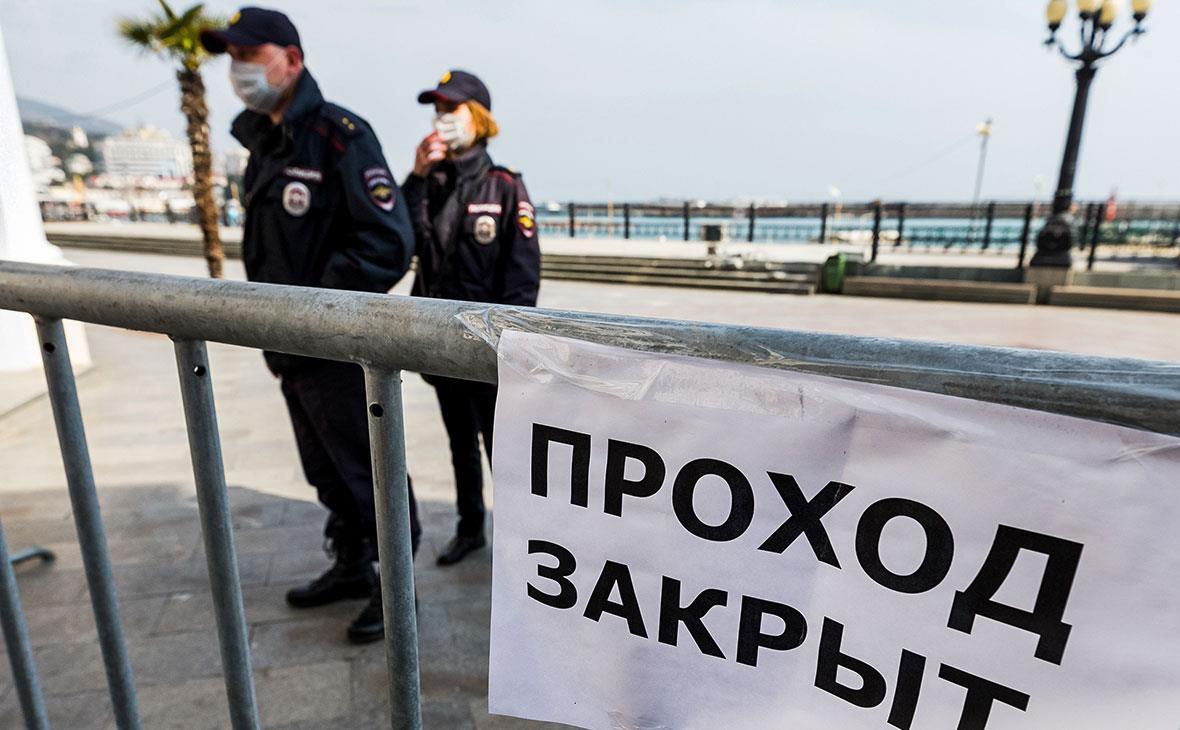The Putin regime’s failure to provide adequate support for Russians it has ordered to remain at home in order to stop the spread of the pandemic and the shortcomings of the Russian medical system as a result of that regime’s healthcare “optimization” have attracted much attention.
But the treatment the Russian occupation forces in Crimea have meted out to the residents of the Ukrainian peninsula and especially to the Crimean Tatars has been far worse, mitigated only by the fact that the numbers of infections there is still much smaller than in Moscow and other Russian cities.
Instead of providing assistance or medical care to the people of Crimea, Kseniya Kirillova says in a commentary for Region.Expert, the occupation authorities have responded to the crisis by stepping up their monitoring of the population lest it protest and by repression whether it does or not.
This approach builds on the one that the occupiers have been following since the beginning. To open the way for bringing in doctors from Russia, the occupation worked long and hard to discredit local doctors as a prelude to cutting their pay and making their continued presence impossible, the US-based Russian journalist says.
As a result, the healthcare system in Crimea was thrown back to a level even behind that in the Russian Federation. Patients were assigned numbers in line for treatment, and these lines were so long, activists on the peninsula say, that many of them “simply haven’t stayed alive until a doctor can see them.”
The coronavirus has made the situation worse but not yet led to its complete collapse because the numbers of infected remain small, although they appear likely to increase if Russians come from hotspots like Moscow for vacations in the south. In that event, Crimeans say, the healthcare system there will disintegrate.
In occupied Crimea, there are no masks available for sale “or they are so expensive” that no one can afford them given that people aren’t working and bringing in incomes.
But as bad as things are for the general population in Crimea, the situation with regard to the Crimean Tatars now being detained by the powers that be is far worse, Kirillova continues. Some have high temperatures and a cough but aren’t even being given tests to see if they have the virus and need treatment.
Those held in prison colonies in Crimea “do not have even elementary means of personal protection, masks or disinfectants,” and “tests for the new virus are not conducted there” at all, she reports. What the Russian occupiers care about is protecting Russian troops now on the peninsula “but not the local population.” (On that, see this article.)
Because of rising fears and anger about the situation, the occupation authorities have reason to fear that there may be protests of one kind or another, and to forestall that, they have invested not in means to help the population but rather to monitor its movements in much the same way that the city of Moscow has, Kirillova adds.
Yet another factor contributing to rising tensions in Crimea is that because of sanctions, Crimean residents cannot make use of the Internet resources and employment that others can. As a result, the residents of the occupied Ukrainian peninsula are left with both fewer opportunities and less hope that they will be able to avoid an explosion in the number of infections.
As far as one can tell, the occupiers care far less about that than about protests; and so the people of Crimea and the Crimean Tatars in particular are likely to suffer not only from the pandemic itself but from increased repression because of the assumptions and concerns of Moscow and its occupiers.
Read More:
- Pandemic adding to burdens sanctions have imposed on Moscow for seizing Crimea, Umland says
- Moscow continues hybrid war against Ukraine despite pandemic, Danilyuk says
- Documentary “Crimea. As it Was” shows the very beginning of Russia’s occupation of the peninsula
- Ukraine’s new fiction reflects warriors of light, Crimean fleet, and Russian occupation
- Ukraine’s water blockade of Crimea should stay, because it’s working
- Kremlin employs Cossacks, Moscow Patriarchate in Ukraine against Kyiv
- Ukrainian army now fights not only Russian proxies in Donbas, but also spread of COVID
- Moscow creates new ‘Cossack’ paramilitary units for possible use against Ukraine
- While nobody is watching, COVID-19 may allow Russia to crush Ukraine
- Putin created unit that blew up apartment blocks in 1999 a year ahead of time, Kruglov says

